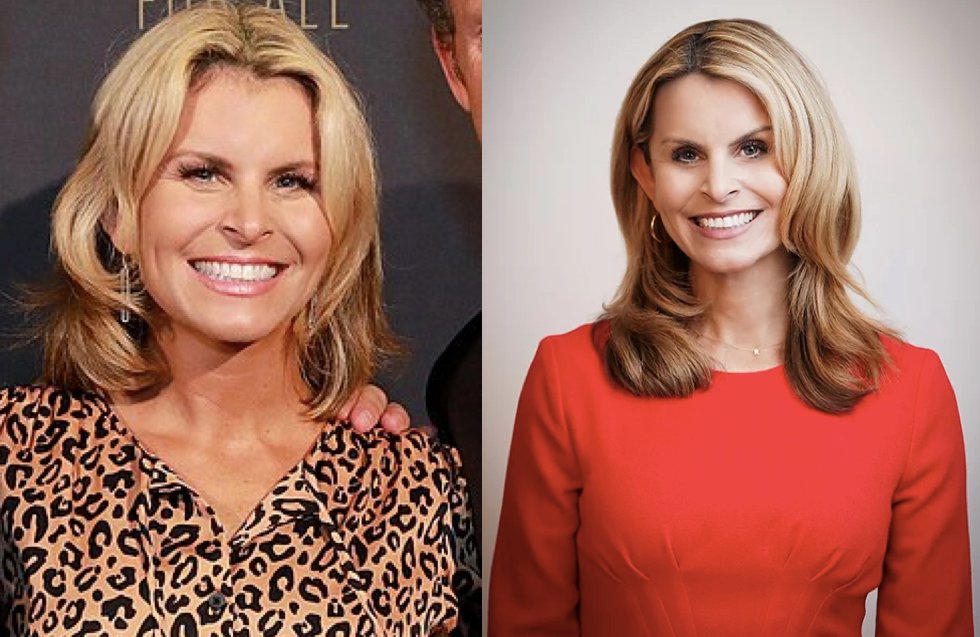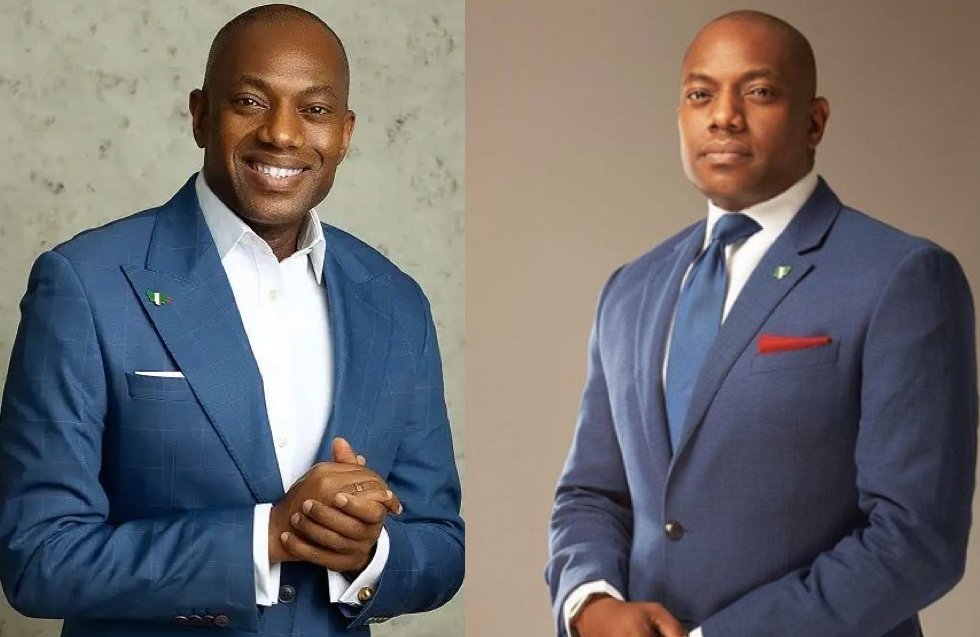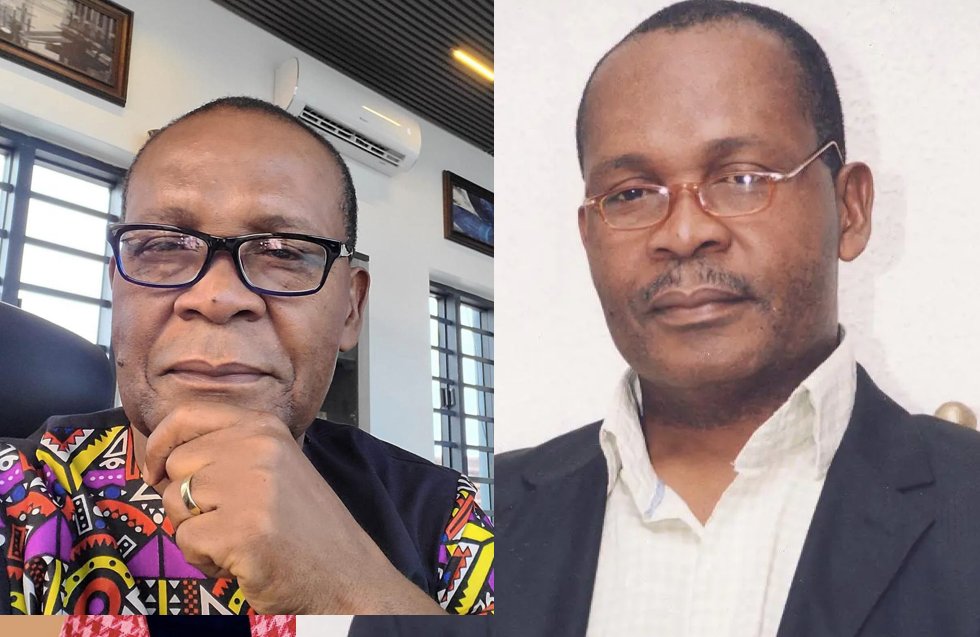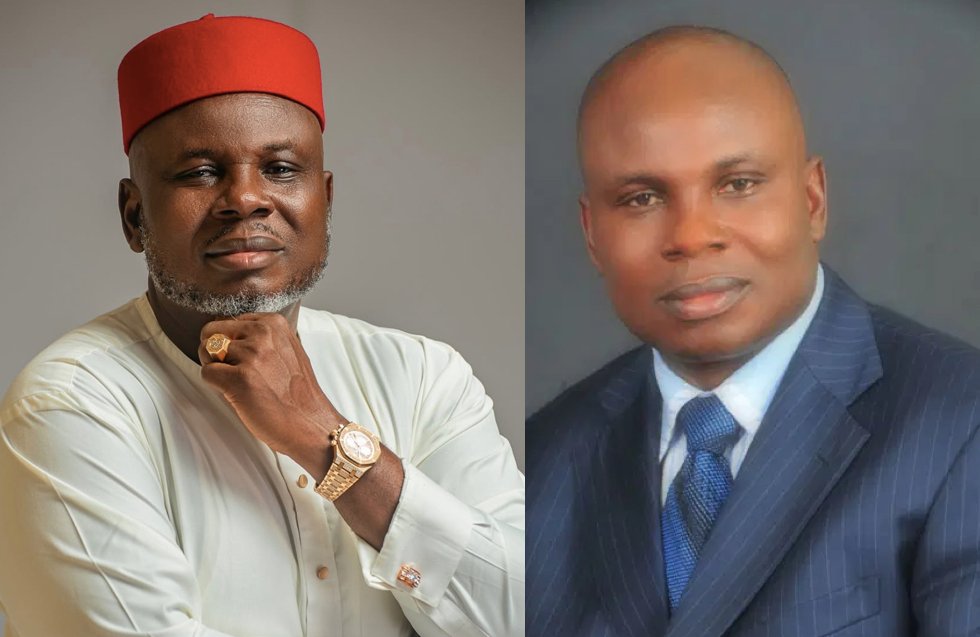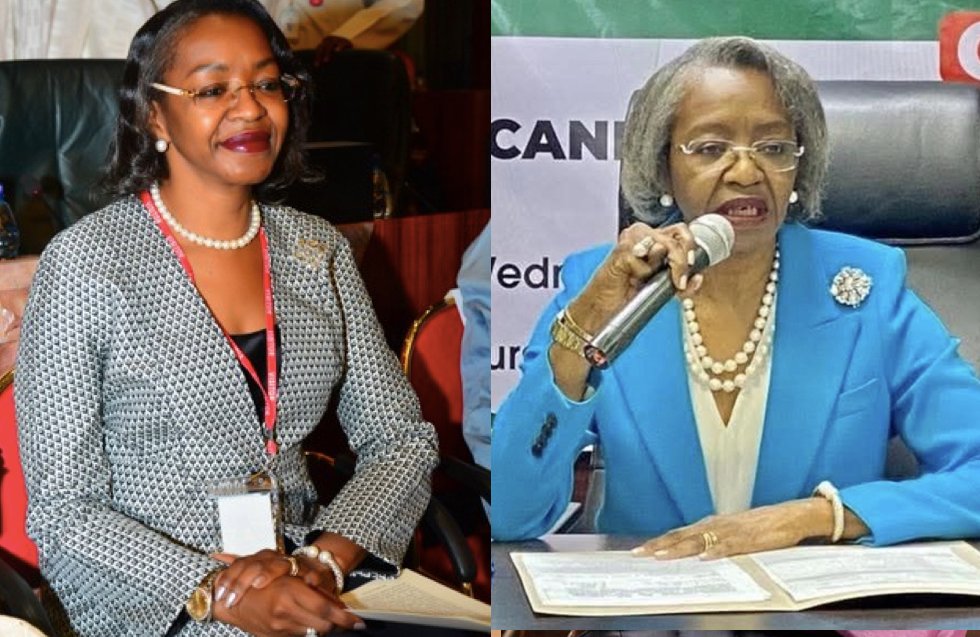Issa Tchiroma biography reveals the inspiring story of Cameroon’s opposition leader, former minister, and 2025 presidential candidate. Discover his age, career, family, net worth, and political transformation.
Who is Issa Tchiroma Bakary?
Issa Tchiroma Bakary is a Cameroonian politician, statesman, and former railway engineer who was born on September 10, 1946, in Garoua, northern Cameroon. He is one of Cameroon’s most prominent political figures, known for his remarkable transformation from a long-serving government minister under President Paul Biya to becoming a leading opposition candidate in the 2025 presidential election.
Tchiroma served as Minister of Employment and Vocational Training from 2019 to 2025, and previously held positions as Minister of Communication from 2009 to 2019 and Minister of Transport from 1992 to 1996. His political career spans over three decades, during which he evolved from an imprisoned political detainee to one of the most powerful voices in President Biya’s administration, before dramatically breaking away to challenge the very system he once defended.
What makes Tchiroma’s story particularly compelling is his six-year imprisonment following the failed 1984 coup attempt, during which he taught himself English while enduring harsh conditions. His journey from opposition activist to government spokesperson, and now back to opposition presidential candidate, represents one of the most dramatic political transformations in recent African history.
In June 2025, Tchiroma shocked the nation by resigning from government and announcing his candidacy for president, calling for an end to Biya’s 43-year regime. His campaign slogan “Le peuple au pouvoir / We are the power” reflects his vision for a Cameroon centered on the people rather than one individual.
Quick Facts About Issa Tchiroma
| Category | Details |
|---|---|
| Full Name | Issa Tchiroma Bakary |
| Date of Birth | September 10, 1946 (some sources say 1949) |
| Age | 79 years old (as of 2025) |
| Place of Birth | Garoua, North Region, Cameroon |
| Nationality | Cameroonian |
| Ethnicity | Northern Cameroonian |
| Languages | French, English (self-taught during imprisonment) |
| Education | Railway Engineering, Technical Training in Transport |
| Profession | Politician, Former Railway Engineer, Statesman |
| Political Party | Front for the National Salvation of Cameroon (FNSC) – President |
| Previous Party | Union National Union for Democracy and Progress (UNDP) |
| Ministerial Roles | Transport (1992-1996), Communication (2009-2019), Employment (2019-2025) |
| Presidential Campaign | 2025 Cameroon Presidential Election Candidate |
| Marital Status | Information not publicly available |
| Children | Information not publicly available |
Early Life and Background
Born into a respected family in Garoua, Issa Tchiroma’s father was an influential figure who served as an advisor to the lamido (traditional ruler) and was known for his integrity. This upbringing in a family of influence and strong moral values shaped young Tchiroma’s worldview and instilled in him principles that would guide his future political career.
Growing up in northern Cameroon during the post-independence era, Tchiroma witnessed firsthand the challenges facing his region and country. The northern region, predominantly Muslim and culturally distinct from the southern Francophone areas, has long faced marginalization concerns that would later inform his political positions.
His early education took place in Douala, Cameroon’s economic capital, where he was exposed to the country’s economic heartbeat and industrial development. This experience sparked his interest in technical fields and infrastructure development, setting the stage for his future career as a railway engineer.
The cultural and political environment of his youth, marked by Cameroon’s transition from colonial rule to independence and the establishment of the Ahidjo government, profoundly influenced Tchiroma’s understanding of governance, national unity, and the importance of regional representation in national politics.
Education and Professional Training
After completing his studies in Douala, Tchiroma pursued technical training in the field of transport and later moved to Paris to prepare a Ph.D. in mathematics at the University of Paris (Jussieu). However, his academic path took an unexpected turn due to political circumstances.
Faced with political pressures, he ultimately joined the Institut Supérieur des Matériaux et de la Construction Mécanique (ISMCM) where he became a railway engineer specializing in materials and construction. This technical training in France provided him with advanced knowledge in transport systems, materials engineering, and construction methodologies that would prove valuable in his later ministerial roles.
His educational journey reflects the trajectory of many ambitious young Cameroonians of his generation who sought advanced training in France, the former colonial power, to acquire technical expertise needed for their country’s development. The rigorous French engineering education system equipped him with analytical skills and problem-solving abilities that transcended technical applications and proved valuable in political strategy and governance.
The bilingual skills he later acquired during his imprisonment added another dimension to his educational profile, making him one of the few truly bilingual political leaders in Cameroon who could effectively communicate with both Francophone and Anglophone populations.
Career Timeline and Major Milestones
| Year | Position/Event | Significance |
|---|---|---|
| 1970s-1984 | Railway Engineer at Regifercam | Professional foundation in transport sector |
| 1984 | Arrested after failed coup attempt | Six-year imprisonment begins |
| 1984-1990 | Political prisoner (Kondengui & Yoko prisons) | Self-taught English during detention |
| 1990 | Released from prison | Political liberalization in Cameroon |
| 1992 | Elected to National Assembly (UNDP) | Entry into formal politics |
| 1992-1996 | Minister of Transport | First ministerial appointment |
| 2007 | Founded FNSC | Established own political party |
| 2009-2019 | Minister of Communication | Government spokesperson, handled major crises |
| 2019-2025 | Minister of Employment & Vocational Training | Youth employment and training programs |
| June 2025 | Resigned from government | Announced presidential candidacy |
| October 2025 | Presidential candidate | Challenging President Biya |
Early Career as Railway Engineer
Before entering politics, Tchiroma built a solid professional foundation in the transport sector. After completing his training, he returned to Cameroon and worked as a materials and construction engineer at Regifercam (the National Railway Corporation) in Douala. His work at Cameroon’s national railway company involved technical aspects of railway construction, materials management, and infrastructure maintenance.
This professional experience gave him intimate knowledge of Cameroon’s transport infrastructure challenges, the complexities of managing large-scale technical projects, and the intersection of technical expertise with administrative governance. His engineering background would later inform his approach to policy-making when he served as Minister of Transport.
Working in Douala, Cameroon’s economic hub, also exposed him to the business community, labor issues, and the practical challenges of operating state enterprises in a developing economy. These experiences provided valuable insights that would serve him throughout his political career.
Imprisonment and Political Awakening (1984-1990)
The most transformative period of Tchiroma’s life began with tragedy. In 1984, following a failed coup that year, Tchiroma was arrested by the Cameroonian government due to his alleged involvement even though he wasn’t directly involved. This event would fundamentally alter the trajectory of his life.
Tchiroma claimed he was not involved in the coup attempt and described the atmosphere in Douala as dark and full of uncertainty, with a lack of reliable information about the events in Yaoundé. Being from the North, a region suspected of supporting the coup plotters, he fell under suspicion. After searches and damages to his home, he was arrested on April 16, 1984.
Despite no charges being brought against him, Tchiroma was imprisoned first at Kondengui prison, then transferred to Yoko prison, where he endured lengthy detention under harsh conditions denounced by Amnesty International. The conditions were brutal, and the injustice of imprisonment without trial left an indelible mark on his political consciousness.
However, Tchiroma refused to let imprisonment destroy him. During his years in detention, Tchiroma, a French-speaking Cameroonian, taught himself English. This remarkable achievement demonstrated his resilience and foresight, as bilingualism would later become one of his greatest political assets in a country divided along linguistic lines.
After more than six years, he was finally released in 1990 during a wave of political liberalization sweeping across Africa. His prison experience transformed him from an apolitical engineer into a committed political activist determined to fight for justice and democratic reforms.
Entry into Politics and Parliamentary Career
In the early 1990s, Tchiroma served as Secretary-General of the opposition party, the Union National Union for Democracy and Progress (UNDP). This role marked his formal entry into opposition politics during Cameroon’s democratic opening following the La Baule Conference, which pressured African leaders to adopt multiparty democracy.
In the March 1992 parliamentary elections, he was elected to the National Assembly representing the Bénoué constituency in North Province under the UNDP banner. His electoral success was significant, demonstrating that his imprisonment had not diminished his political standing; rather, it had enhanced his credibility as someone who had suffered for his principles.
His election came during a critical period in Cameroon’s political evolution, as the country held its first multiparty elections in decades. The atmosphere was charged with hope for democratic change, and Tchiroma positioned himself as one of the leading voices for reform.
First Ministerial Appointment: Minister of Transport (1992-1996)
Following Biya’s controversial victory in the October 1992 presidential election, Tchiroma was appointed Minister of Transport on November 27, 1992, alongside fellow UNDP leader Hamadou Moustapha. This appointment was controversial, as it meant joining the government of the man who had imprisoned him.
Tchiroma and Moustapha accepted their appointments without approval from UNDP President Maigari Bello Bouba, causing friction within the opposition party. This pragmatic decision to work within the system rather than remain in pure opposition would become a pattern in Tchiroma’s political career.
As transport minister, he implemented various reforms, including modernizing road safety, introducing mandatory technical inspections, and regulating air and maritime transport. He also set up a road fund to improve infrastructure. His engineering background proved invaluable in this role, as he could understand the technical complexities of transport policy.
During this period, he also encouraged foreign investment in Cameroon’s transport sector, recognizing that the country’s development required external capital and expertise. His tenure lasted until September 19, 1996, when he was replaced by Joseph Tsanga Abanda.
Years Outside Government and Party Formation (1996-2009)
After leaving the government in 1996, Tchiroma remained active in politics but operated from outside the executive branch. He ultimately left the UNDP and rejoined it again in 2002, demonstrating the fluid nature of Cameroon’s opposition politics and the challenges of maintaining party unity.
Following the June 2002 parliamentary election, Tchiroma joined four other notable northern politicians in releasing a statement alleging electoral fraud and announcing the formation of a “resistance front.” They warned that the governing CPDM was moving Cameroon back toward single-party rule.
This period saw Tchiroma struggle with the dilemma facing many opposition politicians: whether to maintain ideological purity outside government or accept pragmatic compromises to influence policy from within. His criticism of the government intensified during this time, as he became frustrated with the lack of democratic progress.
In 2007, Tchiroma left the UNDP and formed the Front for the National Salvation (FNSC) and became its president. This move gave him control over his own political vehicle and freed him from the constraints of party politics that had sometimes limited his options. The FNSC positioned itself as a centrist party that could work with the government while maintaining some independence.
Return to Government: Minister of Communication (2009-2019)
Two years after forming FNSC, in 2009, he was appointed Minister of Communication in the cabinet of Prime Minister Philémon Yang. This appointment came at a crucial time, as Cameroon faced multiple security and political challenges that required effective government communication.
As Communication Minister, Tchiroma became the public face of the government, holding regular press conferences and explaining government policies to the public. His bilingual abilities made him particularly effective in this role, as he could communicate with both Francophone and Anglophone audiences.
His tenure coincided with several of Cameroon’s most challenging crises. As government spokesperson, he became the face of the state during the Anglophone crisis and the Boko Haram insurgency, speaking almost daily and weighing his words carefully to avoid inflaming already sensitive public opinion.
However, his role as government defender led to several controversies. In one case, he denied that Cameroonian soldiers had killed women and children in the Far North, a claim later debunked by the BBC, after which the government revised its initial position. In another instance, he stated on Equinoxe Television that “The military does not kill,” in response to reports of military violence in Anglophone regions, a statement critics viewed as dismissive of civilian concerns.
Despite these controversies, Tchiroma’s decade as Communication Minister solidified his reputation as one of President Biya’s most loyal and effective defenders. His ability to articulate government positions, even in the face of criticism, made him indispensable to the regime.
Minister of Employment and Vocational Training (2019-2025)
In 2019, Tchiroma was appointed the Minister of Employment and Vocational Training, a role he served until June 2025. This appointment represented a shift from public-facing communication to focusing on one of Cameroon’s most pressing challenges: youth unemployment.
In this role, Tchiroma oversaw the construction of several training centers in partnership with France, South Korea, the World Bank, and the African Development Bank (AfDB). He demonstrated the same pragmatic approach that characterized his earlier ministerial work, seeking international partnerships to address domestic challenges.
He pushed for a law requiring foreign companies to contribute to the training of young Cameroonians, and the cost of vocational training was lowered to 50,000 FCFA annually so that training became more accessible to a wider portion of the population. These initiatives demonstrated his commitment to making vocational training accessible to ordinary Cameroonians and ensuring that foreign investment benefited local youth.
However, behind the scenes, Tchiroma was growing increasingly disillusioned with the government. A strong figure in the government, Tchiroma grew disillusioned with the weakening of leadership, the centralization of power, the despair of the youth, and the stagnation of the state. The absence of cabinet meetings for over a decade further solidified his belief that it was time to break away.
Dramatic Break with Biya Government (June 2025)
In June 2025, Tchiroma unexpectedly broke ties with President Biya and publicly announced his resignation from the government. The announcement sent shockwaves through Cameroon’s political establishment, as Tchiroma had been one of Biya’s most visible and loyal ministers for nearly two decades.
In a press conference, Tchiroma declared his intention to break the nearly five-decade dominance of Biya’s regime, calling it a system that has “broken public trust” and failed to deliver tangible benefits to the Cameroonian people. He stated powerfully: “A country cannot exist in the service of one man.”
In his resignation letter and a follow-up 24-page manifesto, he pledged to “dismantle the old system” and rebuild trust with citizens through sweeping democratic reforms. He called for a break with “a model in place for decades that has shown its limits” and emphasized the need for reconciliation in a country facing multiple crises.
This dramatic transformation from staunch government defender to opposition challenger represents one of the most striking political shifts in Cameroon’s recent history. Tchiroma’s intimate knowledge of the government’s inner workings made his criticisms particularly devastating.
2025 Presidential Campaign
Within 24 hours of resigning, Tchiroma officially announced his candidacy for the 2025 presidential election, positioning himself as the leading challenger to President Biya’s bid for an eighth term. His campaign has drawn significant support from Cameroonians yearning for change after more than four decades of Biya’s rule.
His campaign focuses on several key themes:
Federalism: Tchiroma has made federalism a centerpiece of his campaign, proposing to return Cameroon to a federal system of government. He promised a referendum on federalism that would devolve more authority to the country’s 10 provinces, a proposal long seen by analysts as a potential solution to the Anglophone crisis.
National Reconciliation: Tchiroma has proposed a national reconciliation process that would include amnesty for political prisoners and Anglophone separatist leaders, and dialogue with the separatists. This represents a dramatic reversal from his previous position as government spokesperson during the Anglophone crisis.
Anti-Corruption Measures: He has promised a comprehensive audit of government spending and stronger accountability mechanisms to combat the endemic corruption that has plagued Cameroon’s public sector.
Decentralization: Tchiroma stated, “Centralisation has failed. You do not need people to speak for you – you need to be listened to.” His commitment to devolving power to regions represents a fundamental challenge to the centralized system that has characterized Cameroon under Biya.
Victory Claim and Election Controversy
Following the October 12, 2025 presidential election, Tchiroma declared victory and called on President Biya to “honour the truth of the ballot box.” Speaking from his hometown of Garoua, the 79-year-old former minister stated: “Our victory is clear. It must be respected. The people have chosen. And this choice must be respected.”
However, Minister of Territorial Administration Paul Atanga Nji rejected Tchiroma’s claim and accused the opposition candidate of trying to disrupt the electoral process, warning that only the Constitutional Council can declare a winner. Official results are expected by October 26, 2025.
Tchiroma credited voters for defending their ballots “against intimidation,” suggesting that despite state control, his grassroots support proved decisive. His campaign drew large crowds and backing from a coalition of opposition parties and civic groups frustrated with Biya’s long rule.
Personal Life and Family
Issa Tchiroma maintains a notably private personal life, with limited public information available about his family, marital status, or children. This discretion regarding personal matters is common among Cameroonian politicians, who typically keep family affairs separate from their public careers.
What is known is that his father was an influential figure in Garoua who served as an advisor to the traditional ruler, suggesting that Tchiroma comes from a family of some social standing in northern Cameroon. This background likely provided him with valuable social networks and political connections in the North Region.
His bilingual abilities, including French (his native language) and English (which he taught himself during imprisonment), have been crucial assets throughout his political career. His ability to communicate effectively with both Francophone and Anglophone Cameroonians has distinguished him from many political leaders who are comfortable in only one language.
Net Worth and Financial Profile
Specific information about Issa Tchiroma’s net worth is not publicly available, as Cameroon does not have strong asset declaration requirements for public officials. However, as someone who served as a government minister for nearly 20 years in various high-profile positions, he has likely accumulated substantial wealth through legitimate ministerial salaries and benefits.
Ministers in Cameroon receive significant compensation packages, including official residences, vehicles, security details, and other perks that come with high government office. His long tenure in government, particularly in prestigious ministries like Communication and Employment, would have provided substantial income and benefits.
Additionally, his professional background as a railway engineer before entering politics suggests he had established some financial foundation prior to his political career. His education in France and technical expertise would have commanded good salaries in Cameroon’s transport sector during the 1970s and early 1980s.
However, Tchiroma has positioned himself as someone fighting against the corruption and mismanagement that has characterized Biya’s government, which may suggest he has not engaged in the type of wealth accumulation through corruption that has enriched some other long-serving ministers.
Political Legacy and Impact
Issa Tchiroma’s political journey represents several significant themes in contemporary African politics. His transformation from imprisoned opposition activist to government minister to opposition presidential candidate illustrates the complex relationship between power, pragmatism, and principle in African governance.
His willingness to work within the system for decades, serving as one of Biya’s most visible defenders, followed by his dramatic break with the regime, raises important questions about the effectiveness of working from within versus external opposition. Some critics argue that his years defending government abuses compromised his moral authority, while supporters contend that his insider knowledge makes him uniquely qualified to reform the system.
His emphasis on federalism as a solution to Cameroon’s Anglophone crisis represents a potentially transformative approach to the country’s deepest structural challenge. If implemented, it could fundamentally reshape Cameroon’s governance structure and address long-standing grievances about centralization and regional marginalization.
His bilingual abilities and his efforts to bridge Cameroon’s linguistic divide position him as one of the few political leaders with genuine crossover appeal to both Francophone and Anglophone populations. In a country increasingly fractured along linguistic lines, this ability to communicate across divides is invaluable.
Challenges and Controversies
Tchiroma’s political career has not been without significant controversies. His decade as Communication Minister, during which he defended government actions during the Anglophone crisis and denied military abuses later confirmed by international media, remains a source of criticism. Many Anglophone Cameroonians remember his dismissive statements about military violence and his role in suppressing dissent.
His transformation from government defender to opposition challenger has led to accusations of opportunism from some quarters. Critics question the sincerity of his newly adopted positions, particularly his support for federalism after he previously banned the word from national media as Communication Minister.
Just days after he declared his candidacy, the government banned all CNSF political activities in a sub-district of the Far North, where Tchiroma holds significant grassroots influence. This suggests that the government views him as a serious threat and is willing to use administrative measures to limit his campaign activities.
Vision for Cameroon’s Future
Tchiroma’s vision for Cameroon centers on several interconnected themes: democratic renewal, federalism, national reconciliation, and anti-corruption measures. He argues that Cameroon’s current centralized system has failed and that only fundamental structural reforms can address the country’s multiple crises.
His proposed reforms include devolving significant power to regional governments through federalism, conducting a comprehensive audit of government finances, implementing strong anti-corruption measures, pursuing national reconciliation through dialogue with separatists and amnesty for political prisoners, and making vocational training more accessible to address youth unemployment.
These proposals represent a comprehensive alternative vision to the status quo, though implementing them would require overcoming significant political resistance from entrenched interests that benefit from the current system.
Conclusion
Issa Tchiroma Bakary’s remarkable journey from railway engineer to political prisoner to government minister to presidential candidate embodies the complexities of African politics. His story is one of resilience, pragmatism, transformation, and ultimately, a late-career commitment to challenging the system he once defended.
At 79 years old, Tchiroma represents both experience and change. His decades in government give him intimate knowledge of state machinery, while his dramatic break with Biya signals a willingness to risk everything for political transformation. Whether his claim of victory in the 2025 election is vindicated remains to be seen, but his candidacy has already energized many Cameroonians who yearn for change.
His legacy will ultimately depend on whether his transformation from government defender to opposition champion proves genuine and whether his vision for a federal, democratic Cameroon can overcome the powerful forces arrayed against political change. Regardless of the election outcome, Tchiroma has already secured his place as one of the most significant political figures in contemporary Cameroon.
Frequently Asked Questions (FAQs)
Issa Tchiroma was born on September 10, 1946, making him 79 years old as of 2025, though some sources indicate he may have been born in 1949, which would make him 76 years old.
Tchiroma was arrested following the failed 1984 coup attempt against President Biya due to alleged involvement, even though he wasn’t directly involved, and spent six years in harsh prison conditions without ever being formally charged.
Tchiroma served as Minister of Transport (1992-1996), Minister of Communication (2009-2019), and Minister of Employment and Vocational Training (2019-2025) under President Paul Biya’s government.
Tchiroma resigned from his position as Minister of Employment and Vocational Training in June 2025, immediately announcing his candidacy for the 2025 presidential election against his former boss, President Biya.
Tchiroma is the president of the Front for the National Salvation of Cameroon (FNSC), which he founded in 2007, and he is the party’s presidential candidate for the 2025 election.
Information about Issa Tchiroma’s marital status, wife, and children is not publicly available, as he maintains a private personal life separate from his public political career.
Tchiroma studied mathematics at the University of Paris (Jussieu) and later trained as a railway engineer at the Institut Supérieur des Matériaux et de la Construction Mécanique (ISMCM), specializing in materials and construction.
Tchiroma’s main promise is to implement federalism through a referendum that would devolve power to Cameroon’s 10 provinces and pursue national reconciliation through amnesty for political prisoners and dialogue with Anglophone separatists.
